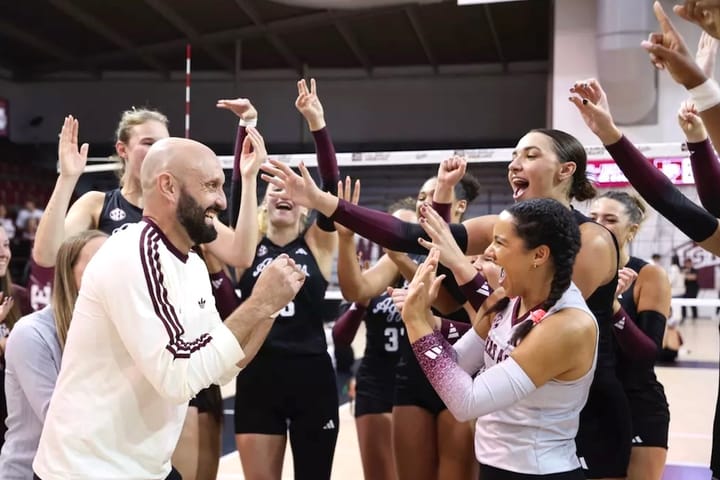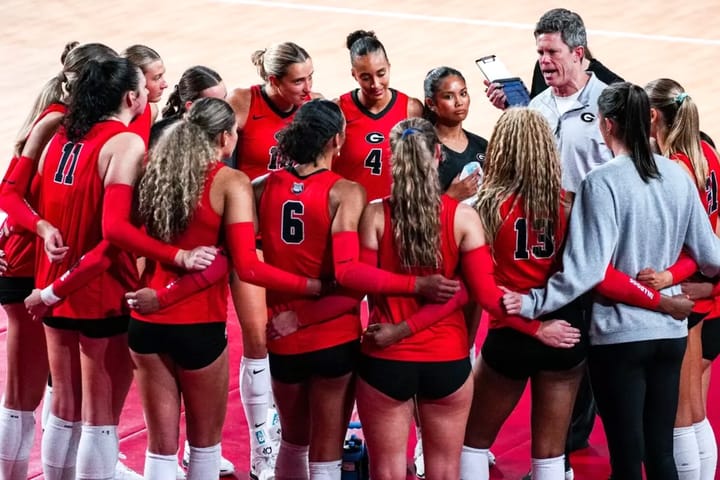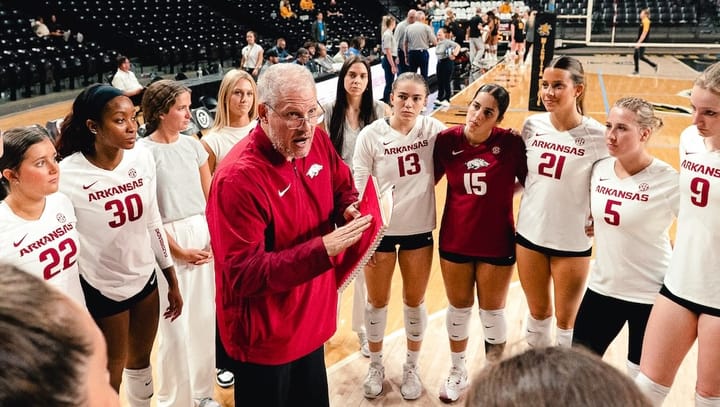36. Giuseppe Vinci:"We need to professionalize volleyball."
In this masterclass we don't feature a current volleyball coach, but to not call Giuseppe Vinci a 'volleybrain' would be a blatant error. Giuseppe was the CEO and founder of Volleymetrics and currently the Market Director at Hudl.
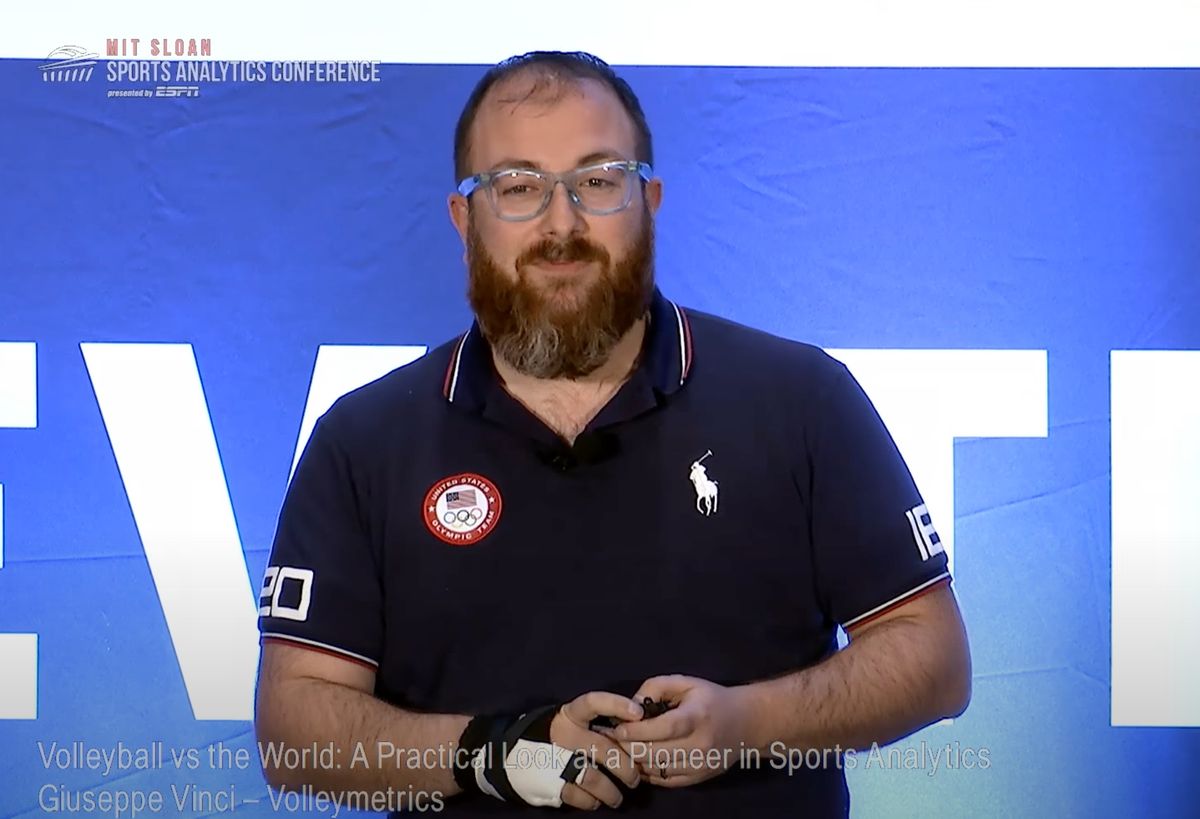
Hudl is a global leader in sports video analysis and analytics. Giuseppe's Volleymetrics got acquired by Hudl in 2017.
Let's also not forget that Giuseppe was an assistant coach for the Italian national team, the USA indoor and beach Olympic teams and BYU.
How Volleymetrics came about, real world use cases, the future of volleyball and sports tracking and analytics that is what this Masterclass is about...
But we also go deeper into Giuseppe's idea's about professionalizing our game, talk about his grass roots, the importance of coaches empowering their staff and much, much more...
Enjoy!
Enter Giuseppe.
Giuseppe, how did you get started in volleyball?
It's a little cliche, but volleyball chose me.
I started playing a bit in junior high. And in my school you couldn't take down the net poles, they were just there.
So we would always end up playing volleyball during our physical education classes during the school hours. Lots of my friends, because of that, played volleyball. So I got close volleyball in that way.
In the second year out of three of middle school, I hurt my ankle. I had a surgery, it was a bad injury. The doctor basically told us, 'Look, if you want to walk when you're 50 or 60 you better stop doing sports.'
I developed early physically. I was ahead of my classmates. Everything would come easy. I was very coordinated. So sports were fun for me, it's not that I would win easy, but it was fun to win and to try to get better. And it was the same with volleyball.
But because of that injury volleyball became the sport where I found a space that would allow me to stay in sports. Without having to compete.
I started helping volleyball teams early on, I was 14, either shagging volleyballs and putting them in the carts or doing the score sheet.
And that's why I say in a way volleyball chose me, because it was perfect for me at that moment in time. It kept me in a world that I loved with people that I really liked.
Even though I was in a difficult situation with my ankle. I eventually tried to play even after my surgery for a few years, I played in high school for my team and all of that, but it didn't take me long to realize that my ankle didn't really like it. And so I focused more and more on coaching.
I got my coaching license when I was 16. So I was sitting on the bench when I was 14, 15 and then got my coaching license when I was 16.
I stopped volleyball just for one year. I had a one year break from volleyball to pursue another dream(music), but then soon after I got back to it and I've been in volleyball ever since.
As an aspiring coach and scout man you were, at a very young age, part of pro teams and soon thereafter the Italian national team. How did all that come about?
For me, stepping up to the pro level was the consequence of the injury that I had as a kid.
So my mom she is an accountant. And when I had that surgery, that injury, she took that very seriously. And I don't know how, but she saved up money to purchase a computer. I didn't have a computer and my mom used a computer at work, but she bought a computer for the house so that I could get started to use the computer.
Because again, my perspective was: I need to take care of my ankle if I want to walk when I'm older. So I need to find a desk job and all of that. So having that computer is what kind of got me started in taking the next step. I started using Excel a little bit because my mom would use it.
I started keeping stats. Again, I was 14. I wasn't even an assistant coach. 'Officially' I was the club representative, because you can not have a coaching license until you're 16. So I would be on the bench as a club representative.
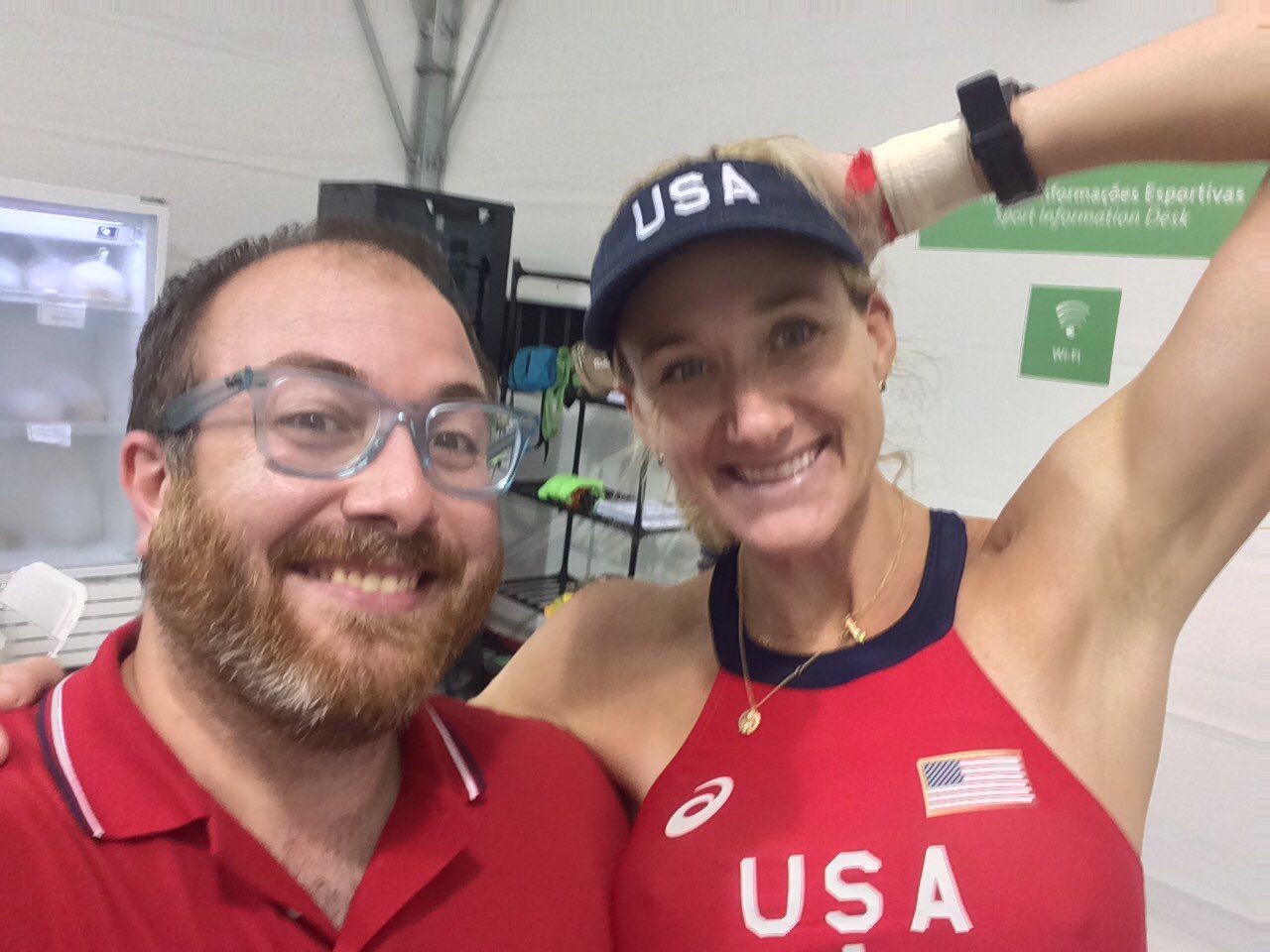
I didn't know a thing about coaching yet, so I would tally the stats or whatever, because the coach asked me to. Just so we knew how many serves we missed, things like that. And because I had this computer, I just started putting it in Excel and would create the seasonal stats and things like that, just because I wanted to keep track of that over time.
And eventually my small club which had four or five teams, right. They purchased me a basic Datavolley license. So they spent all this money to buy me this entry-level Datavolley license and I just devoted myself to analyzing our performance and bring reports back to our head coach.
And from there I started taking the coaching courses to be certified as a coach. And from there again, gained trust and got more involved in the full planning of the practices, the season and the player development.
And so over time, pretty quickly, I got into studying the game in. I found that connection between the numbers and brought something useful back to the coach.
Naturally, when you're at the lower levels, you don't have so much available time with your athletes. For me there was all this other time because I just had school and volleyball, there was all this other time that I devoted to studying the game and figuring out what could make us better.
And so over time, the teams in my area of the country heard what I was up to. They saw me with the computer at the end of the match. And eventually the top team in my area, called me up and said, 'Hey, would you like to come do this job for us?' And that was my first step into professional volleyball, just making the decision to go from the club that I had grown up in, where I had all my friends that I was devoted to and be like, 'Oh yeah. Okay. Then I'm going to go do something else.'
I mentioned earlier that I took one year sabbatical from volleyball at one point in life. I'm a musician. I studied piano for many years and I played the piano in concerts and such with both classical music and rock music.
So I took one year to just focus on university and music.
At the end of that year, the top team, that pro team reached out and it was like, 'Hey, would you consider coming to us?' I had turned them down the year before, because I was committed to trying the music route at least one year.
But when they came back and it was like in the second division of Italian women's volleyball, I was like, okay, I gave a shot to pro music, I know what could come out of it. Let's give a shot to pro volleyball.
And from then I've always been in it, from there I moved around to a couple of teams, and got into the national team for Italy, the men's national team.
That's a whole story right there and eventually ended up in the USA just so that I could finish my university degree while still keeping up my passion for volleyball.
What is starting to be obvious here is that the focus on 'one thing' is a bit of a storyline from where you started til where you are today.
Focusing on one thing and really go deep, it's something that is easier to do when you are 14, 15, 16, 17 years old. In your early twenties then things get more complicated because you have more responsibilities.
I have ideas on how I managed to be so focused and dedicated to something. And I think sports are what taught me to.
If you focus on one skill, on an aspect of the game and you focus on just that to improve, you'll see improvements, but you have to really focus and know how and on what you want to get better at.
You cannot just practice for the sake of practicing and you'll get better. You have to have objectives, you have to have goals.
And so that's probably what got me into the mindset where, 'Okay, I'm going to do this and focus and get better'.
And in those years, you can do so much, just so much because you don't have as many responsibilities as you have later on.
Can you tell a bit more about the founding story of Volleymetrics?
So I mentioned that my mom was an accountant, right.
Even though she was an accountant with lots of experience, very good at her job, she would have to input all the data into her accounting system by hand.
And 'she' had to do it, because she didn't have a bunch of people helping her out.
And I would do that oftentimes for her as a 11, 12, 13 year old. So I could input all the invoices and the records in the system without any accounting training whatsoever, except for my mom explaining me the basics.
And that to me, when I got into volleyball at the high level, it was the same parallel.
I would see all these people getting into the data analysis, focus so much on the data gathering piece and fixing the data and having everything perfect to then just hand over reports and stats to other people.
And kind of, in some instances, missing the point of what we can do with this data.
Like I would see my mom enabling other people to make more money and be more respected because she was willing to do the busy work that others weren't willing to do. And then she wouldn't get the recognition just because she was investing less time in the interpretation of the business financials versus gathering the data, inputting the data.
And I saw that also in volleyball where there were plenty of people like me. I got my in into pro volleyball because I was good at manipulating the data, gathering the data and all of that.
But what really got me moving along was the fact that I wasn't willing to focus only on gathering the data, correcting it and giving it away. I wanted to study. I wanted to be there to learn how to interpret it.
And that's what I did from early on as a kid just about to get my coaching license.
So that's what pushed Volleymetrics to start.
By then I had gone to the 2008 Olympics with the Italian national team and the coaches themselves, when they learned that I had this opportunity to go to the USA and study and coach, they were like, you're going, don't even think about it.
I had the opportunity at that time to be the second assistant to Radostin Stoychev and Sergio Busato in Trento when they had Kaziyski and Juantorena. With that team they won three world championships.
They were the best team in the last two decades.
VolleyBrains:"That team came together during my second season playing in Italy. I remember vividly. So thanks for bringing that pain back."😀
Yeah. And I had the chance to go there, but I also had the chance to go to the USA and Anastasi, Gardini, several people in the volleyball world were like, 'No, you're going.'
And so I came to the USA and the USA gave me the opportunity to delegate the busy work, the data gathering work. I could completely delegate that busy work to the students. So I had a couple of students, I taught them how to do it in a couple of months and they were doing it very well. And I would just take care of the in match while I was on the bench with the head coach.
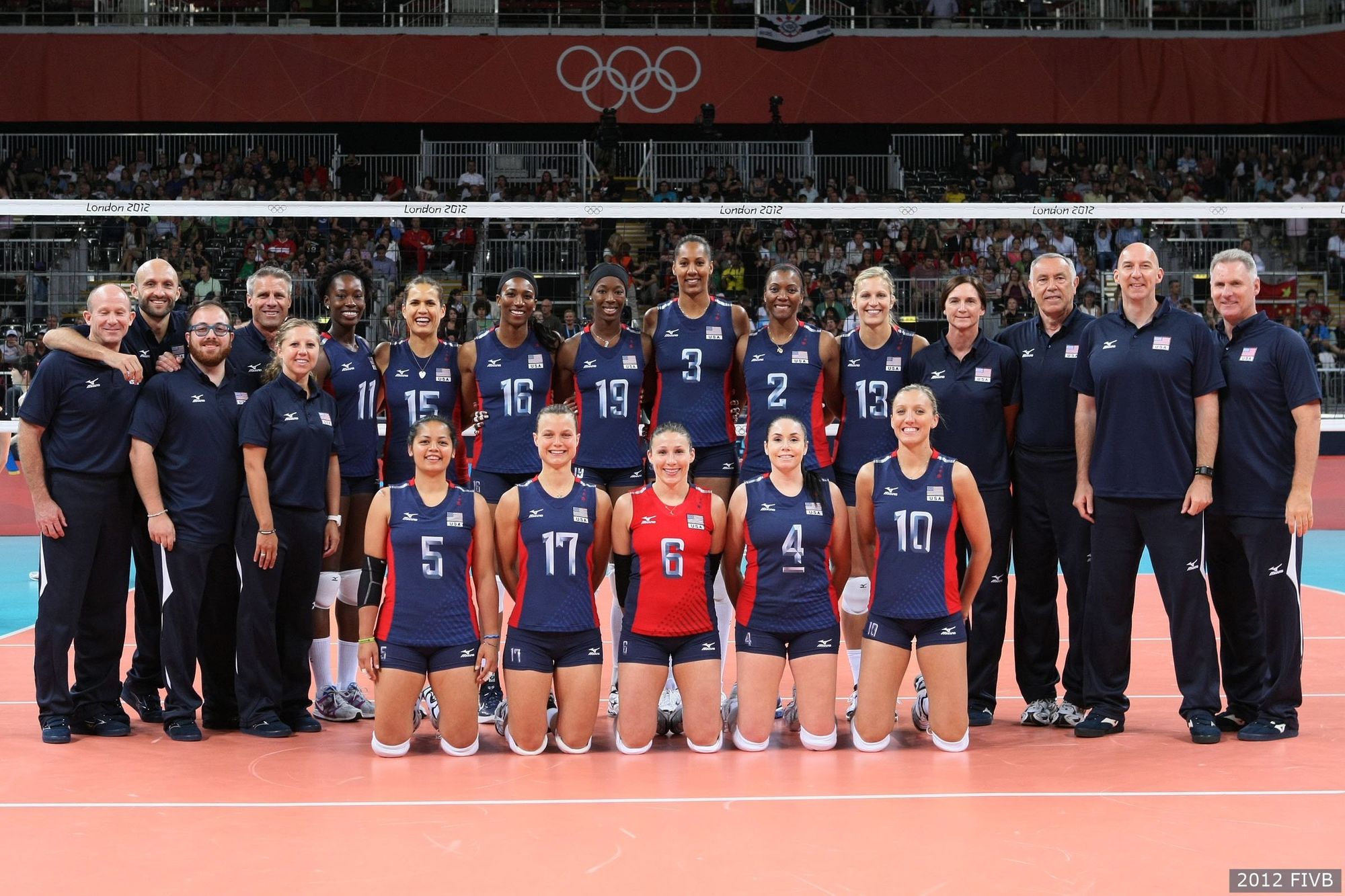
I was gathering my data so that I could use it. But the rest of the time, I was able to study the game, interpret the data and help plan practice, plan matches, scout opponents, decide what type of players we had to recruit.
And also a lot of this time on the side, I started working with the statistics department of the university to really work on a lot of academic papers on volleyball, skills importance, all sorts of things, all sorts of studies in the volleyball space.
And yes, I had a lot of data, but there were a lot of limitations. And as I started using a lot of these studies, teams simply reached out. I was always open about it, it wasn't like my secret to keep to myself.
I started working with the national team because of some of this work. I started working more and more with other teams to see what would come out of it. I studied volleyball nationwide, rather than just my league and my competition, when I was with Brigham Young university.
And eventually that drew a lot of attention where coaches would ask me, can you do these reports for us? I would like to know in our league, what are the most important skills? What are the most important parts of the game? What are the areas where there's the biggest return on investment? If we train, this or we're better at that, etc.
And I quickly realized that unless you had very standardized data, accurate data, not necessarily precise, but at least consistent and accurate, it was going to be impossible. And so that's where I realised, okay how do I do this?
I told teams, 'You can use my students, pay them to gather the data for you and now we can run these reports. You don't have to pay me.'
But eventually it became so many more requests that I was like, oh, what if I create a standard where everybody doesn't have to worry about the baseline data gathering.
Not that the data that I will provide will be perfect, but if I take that time off of everybody's plate, all the sudden the coaches that want to study, get better, learn, analyze, prepare. They will very quickly beat and get better than the coaches that have just been there because of their experience because they've been there 10 years and they just learned over time, but all of the sudden the ones that really are willing to put in the work and have the skills they can catch up and show that, 'Hey, I'm dedicated, I'm good at what I do.'
So that's how it came to be.
And once I started having to invest money into gathering data nationwide in the US and eventually internationally, it had to be a business because it's just too big of an operation to, to just do it for fun. I was still a student and a coach, I didn't have the money to keep 10, 20, 30, 40 people on payroll.
Eventually the success and the scale of that operation also meant that you needed to revolutionize how that you gathered all that data.
I was able to develop a system, on how we gather data, that allowed us to create consistency and that will allow for future steps which are going to be really interesting.
If the reception is perfect or if it's an error or if it's an attack, if it's good or bad, the computer does all of that. So ultimately all of the evaluation is done by a computer and it's always the same.
Maybe it's not correct, from your point of view, from my point of view or whatever, but I can guarantee that it's going to be the same.
There's going to be some mistakes here and there, but the percentage of them on the whole is just so small that it's not relevant.
Naturally, if you're analyzing two matches to prepare for the Olympic games Gold medal match, you'll go through and change things the way you want them to be.
But that's a different kind of approach than what Volleymetrics has in mind.
So that's how Volleymetrics ultimately came to be. It was again, the mindset of 'How do we raise the bar?'
I wanted to allow everybody to get better and experience what I was able to experience in freeing up time to really study the game and go in depth.
What's interesting in all this is the continuous improvement process where you were (and are still) on.
I understand more kind of what was driving decisions now, looking back at it.
Because I'm like, oh yeah, I totally did this because I lived through this pain.
And it took very good coaches, that understood how managing a staff works, to really empower me to make a big difference. And that is a big deal.
A big thing about coaching for me is really empowering the entirety of the coaching staff and distributing responsibilities.
And they also reminded me all the time of analyzing the big picture, what is applicable. Before you go down a rabbit hole to analyze something, that is really important.
That's something that I wish I did more when I was younger. Because you can go down a rabbit hole and learn something and study something for 3, 4, 5, 6 months, and then realize, wait, but how do I use this information? How is it actionable?
Then all of a sudden you go to your head coach or to your sporting director. And they're like, 'Oh yeah, we already knew that. Yeah, you demonstrated it empirically through research, but okay, thanks for confirming it.'
Rather than, 'Oh let's look into something where we know little of or something that if we learn, we can apply to our coaching to our planning directly.'
Analyzing the big picture and what is applicable before you go after something is definitely important.
VolleyBrains:
We talked before about managing your inputs, knowing what kind of output you're aiming for and what kind of measuring tool to use. In the end, it's always about that. You mentioned something really particular, not really particular for the States, but really particular for Europe.
And that's something also that caught my eye researching for Volleybrains and watching more college games, more female games in this case. Is the matter of how a head coach is also manager of his coaching staff, empowering them, et cetera.
Of course for a European watching those games, there's a timeout, you see the coaching come together, the first thing that you think is okay, that's a bit much.
But then in the end you realize, talking to those people, like my first conversation was with John Cook. I'm like, oh, this is actually great for the game because they are empowering people, giving people responsibilities, letting people grow. And of course this main figure, this captain of the ship will stay there for many years, but the other people, okay, they run through the system, they get educated and they can do their thing somewhere else with all that gained experience.
Giuseppe:
And all of a sudden there are more opportunities to demonstrate your work and there's more motivation to actually do quality work.
And that's the baseline I think of professional volleyball is 'professionalize volleyball'.
I don't want to say 'professionalize pro volleyball' because we need to 'professionalize volleyball'.
A good example that you used with John Cook in the US, but there are many others aside from John, it's about roles and responsibilities. And all the people that need to be accountable to it.
I'm not saying that European coaches do not do that, but most clubs do not put them in a condition to be able to do that. Because the general feeling, many times is, 'Oh, you should be grateful to even be a head coach for my team.'
Rather than, 'I want you to be the head coach for my team so that you can make it grow into something even better than it is now.' That's why I chose you. Therefore let's make sure that you have, not necessarily the best people in the world working with you, but people that are willing to learn, that you can help grow.
And over time as more coaches come through, if you professionalize volleyball, the club is left with more knowledge and a better structure and better human capital.
And that is part of professionalising volleyball, which in Europe is not happening as much as it could.
That's a good conclusion. It's not happening as much as...it could.
If you would have to pinpoint a few examples of where Volleymetrics really stands out. Where you personally see the 'real world ROI'. What would those examples be?
We made a mistake of wanting to analyze super in-depth things, right.
And with Volleymetrics you can analyze a very, very in-depth and there's a time and place for that.
But reality is that the best use cases for Volleymetrics, in my mind, are the following.
Imagine an 18 year old player, either on a pro-team starting his young career or on a college team in the US or wherever in the world, having access to Volleymetrics and being able to go and look at Osmany Juantorena or Bednorz, or being able to go look at Kaziyski from years ago and from today or on the women's side to be able to go look at a Jordan Larson or to look at a Lo Bianco the setter of the Italian national team, or being able to look at good volleyball. And really understand what good looks like.
For an athlete that is unbelievable because hopefully it matches with what the coach is trying to teach in the gym, hopefully.
And it just motivates them. It gives them a benchmark and it gives them somebody to look up to.
Oftentimes you see players, young players that are trying to get better with the people on the other side of the net in their little league.
But if you go in football or in basketball, the young players are like, I want to be LeBron James or I want to be Messi. And in volleyball it happens, but on a much smaller scale.
So I think that is one thing, having athletes gain access to that content and being able to really develop a love for the game and an understanding of what good looks like, that's is very big.
And I've seen it over and over with many athletes. There's some players who talk to me and they're like, oh my gosh I watch at least one match a day, one full match a day of high level pro volleyball. 'These days I'm looking at Trento because they're playing with three outside hitters.'
And that was not possible when we were young, right? No way.
But the same is true for the coaches. And we talked a little bit about it. Just being able to do that, watch all these resources, it's huge just to grow as a coach.
Being able to go and study players, 'Oh this is the best passer in the world. Okay. Let me go look at him or look at her and see why.'
When does she start tracking the ball? Does she make her moves early? All these things. And there are many ways. Many different techniques, but seeing these images just gives you a much better approach to study.
And then the third piece, and we barely touched on it, is recruiting players, building your team.
Sporting directors being able to go and search for talent and understand what fits within the playing style of their own team, their playing philosophy and being able together with the coach to get quick feedback on one player or another.
These are all things that can professionalize the game over time.
So even just these three simple use cases are really big.
Then naturally the next step is, I think, the creation of a good feedback loop, right.
We can train athletes 3 - 4 hours a day. But nowadays I feel like both coaches and athletes want to train less and less, because of injuries and overall load, it makes sense, we understand the science better and that's the evolution we're on.
But there's so much time, outside of the time that we spend in practice, that can be used. And for coaches to use this technology be able to communicate with the athletes more actively and provide feedback...well, it impacts the game and the organization you may be working for in so many ways, because you are investing in talent that is owned, let's say by your club.
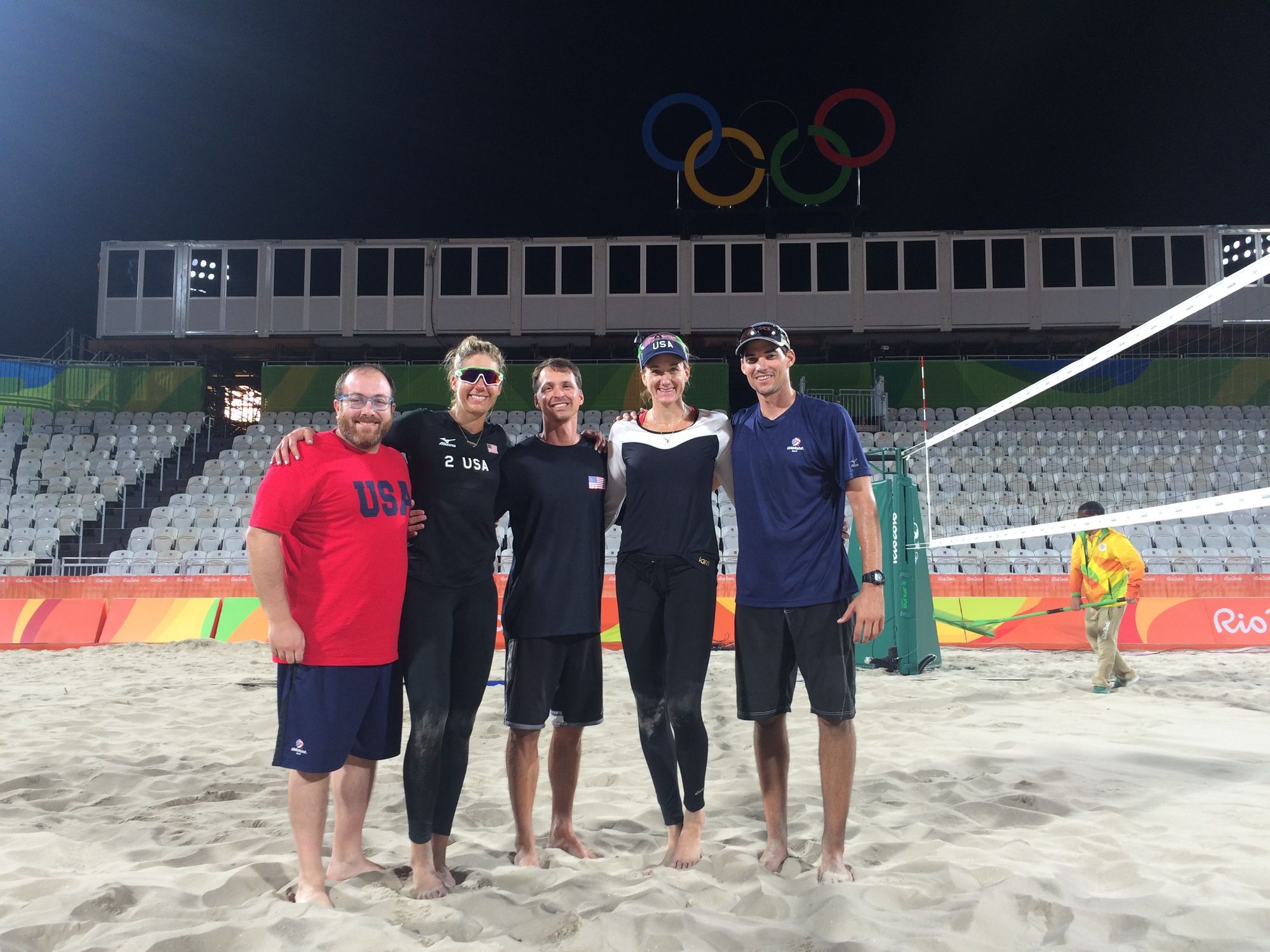
And therefore it's going to gain value. When it matters and you need some help, that player is going to be ready. You're establishing a growth mindset. And you are empowering, enabling people to really feel committed to a common goal of growth and improvement.
So Volleymetrics helps a lot with that feedback loop. By being able to comment and give feedback to athletes.
And so these things, you see, they are not related to stats and numbers at all, it has been only about analysis til now. So then there's all that stats and numbers world which you can dig deeper in...
But to me, those 3 are the biggest use cases.
Then as you are at a more professional level where you have time and space to really go in depth on numbers of course there's all sorts of things that can be done there.
But a lot of people are surprised by how much I really focus on the subjective side of the analysis. On the technical execution of skills versus just the statistical analysis.
As with any software as a service, the technology is ever evolving. Where do you see sports analysis or Volleymetrics in specific move towards over the next years.
Right now I'm working on player and ball tracking.
Because I think that that data is just the next step. I built Volleymetrics in a way that it is built to have that data in it. We just weren't able to gather it reliably and consistently yet.
What we just talked about the mindset of studying the game, focus on coaching, the feedback loop and all that, I hope that that is clear to coaches that had access to our content.
But I think there's still a next step in analytics of the game, right. There needs to be an improvement, an innovation in that area where we're going to start studying the correlation between the location of the players and the location of the ball just to be able to evaluate and understand the game better.
For example, the moment that I have the location of all the players at the moment of the contact with the ball, when an attack happens, I'm going to be able to start evaluating on tens of thousands of events, the defensive range of a player, and how certain blockers kind of limit the offensive range of a player.
And all the sudden we will have such a better understanding of, not necessarily of how you should defend because we have played enough volleyball to know, right, but to really understand, 'Hey, where can we go innovate the game and make tactical decisions or develop players in a way that is going to allow us to gain a better return on investment in practice.'
So that is something that I'm really, really excited about after building a platform that enables coaches and athletes to improve their understanding of the game and identify areas that they should focus on to kind of level up the data.
An important thing that we have to get better at is simplifying the access to every physical sports science type of data available, adding assistant coaches that can leverage and are technical enough to use the data to study and plan and analyze a season or training and to do that job together with strength coaches.
That is something that I figured out is the next step in the high level analysis of the game. In understanding the game even more in depth.
But yeah, little by little, it's something that I'm just working on for awhile. It's finally starting to be more real.
In Masterclass 26 with the S&C coach of Vakifbank, Vanny Miale's interview, we also went a bit deeper on sports performance data gathering. Vakifbank is moving the goal posts there, it's great for the game and athletes that they are gathering this data and more so, using it in an effective way.
Where do you see these tracking systems moving towards?
In football. People have gone at it with devices on the players mostly. The reality is that that gives you data on your own team and usually only when you play at home.(Volleybrains: The Kinexon system needs courtside antenna's to be installed)
But if you go on the road or if you're hosting another team, you don't have your or their data.
The tracking technology through cameras, even normal cameras has become good enough to be able to do that.
So to me, that's where it's going, right.
It's optical tracking rather than everybody having devices. Not because those devices are not good. That's what is good now, but because then you can have all of your opponents tracked and you can have it on anybody, as long as you have the video.
So that, to me, that's where that's going. And once you have that, you can start looking at the accelerations, decelerations and all that. With higher and higher accuracy over time.
Are there other use cases where performance tracking would benefit overall player performance?
The other thing that I was thinking about is everything involving working with your medical staff.
If you start logging all of the treatments that you do to your players and you can overlap them with the performance of the athlete in practice and in match. You're going to start having a good idea how optimal the players physical form needs to be to really perform at the highest level, right.
Which practice intensity leads to the best match performances.
As a coach, you can really start planning practices with taking that into account. And maybe you decide, you know what, I'm going to pull this player out 10 minutes before practice is over, because I know that we don't want to go too intense during the week of an important match.
And I'm going to manage it with how I plan my practice. Things like that. They seem hard to achieve, but like we were saying, it's one Google form per day and a spreadsheet.
Check the analytics spreadsheet mentioned in Masterclass 26 by Vanny Miale. All this data gets captured by athletes' daily auto valuations.

Zooming out, how to make volleyball not a more global product, but a more mainstream product. What do you think is needed for that?
I truly think our sport is great.
I often go to volleyball matches with people who do not know volleyball and they tell me, wow, this was awesome. So our sport is good.
It's spectacular. There's physicality. It's fast-paced, you win a point every, whatever, 40 seconds on average or 30 seconds on average.
I think we have a great product, right.
Yeah, there can be things that you could change maybe to make it easier to manage it for TV, but let's not get into that.
What I think we need to do to make it more fun for the fans and to get more global reach is just professionalize it, professionalize it.
As long as we're okay keeping the status quo of what volleyball is today. And we don't challenge it. As long as we keep doing that, volleyball is gonna stay more or less the same.
If we, as people who work in the sport, coaches, performance analysts, medical staff, players, and such as long as we don't commit to changing that status quo and professionalize volleyball by being more professional in what we expect, in what we do for the team in how we approach it in having a long-term vision, the status quo will remain.
And the worst thing that can happen to volleyball will happen, which is that all these companies investing in volleyball, private equity, you mentioned and such. They will reap the benefits of what the players, coaches, medical staff, performance analysts and such are doing.
And that's to me something that we have to really think long and hard about. Because if now at this time we just settle for the status quo. Because, 'Ah, it's okay for me, I'm a player they're paying me well enough. It's okay.'
And I don't expect the team to invest in the coach or I don't allow them to spend what is really that the market can bear as far as not having the ownership put 100, 200, 300,000 euros every year to just level it up.
If we just keep being just okay with that, that's what will keep volleyball from professionalizing and have a global outreach that really people will get behind.
That to me is kind of the vision, what I hope to see volleyball do over the next years and is what I want to contribute to do, is getting away from the status quo as much as we can so that we can professionalize this sport on the indoor side and on the beach side as well.
That's the opportunity we have, but we have to take it because oftentimes we just sit back and relax. 'Things are good. I'm going to get on a different team next year.'
We have to raise our expectations for everybody around us so that we can professionalize and get out of the status quo that has been, what it has been for the last many years. Not everywhere, but in many places.
Hey, you're doing a big piece of that, I'm doing my attempt of a tiny sliver of that.🙂
No, what I'm seeing is that the game develops at widely different speeds, depending on where you look. Do you think that's due to circumstance or is there another reason?
I'll use an example in my Volleymetrics' specific experience. And I have other examples, but this is a good example. So in Europe performance analysts or scoutmen, however you wat to call them, they make little money.
Okay. They make very little money. And very often the ownership of the club looks at them as they are like the very bottom. And it's not fair because they do a lot.
When I got to the USA in 2008, there were five or six performance analysts in the US.
Now there's over 80, maybe 100. And why is that? Because they are just not only a data gathering person. I have these data, I touch it up a bit and then I provide you with value. Right?
And that is an example of professionalizing one role. It brought so much growth in that area and so much investment from the organizations because they saw the return on that investment.
If we do that across the board, the growth that we can experience is huge. And then with what is now available with volleyballworld and many other things and the internet we can really boost volleyball's global reach.
Before we leave, let's go 'fantasy volley' here. What would be your world's best starting 6 formation. You choose decades, gender etc.
So I will want Jordan Larson for sure.
The other outside....I will probably want somebody like Juantorena, but there's Karch, Karch Kiraly, so that I can watch him play live, because everybody saw the videos, but I want to see him live. 🙂
Middle blockers, I probably will go Hubner and Gustavo, the fact that they played together on a team, it's just crazy. Unbelievable.
Then opposite, who would I want opposite? The first name that comes to mind is Miljkovic, but I'm getting all players from the same kind of decade, that's when I got into volleyball big time.
But then Giani is out , Gardini is out. 🙂
So I would have Corsano as a libero. And as a setter, well Lo Bianco was just unbelievable to me.
But I still have no opposite. So do I go Zorzi, do I go Miljkovic?
I'll probably go Giani. Giani, I think played opposite at some point, because Giani is just, oh my gosh, he played every position you can think of and all the other ones.
So that will be my six, seven players. The first ones that come to mind.
Thanks Giuseppe!
😇 Here goes the shameless plug
Volleybrains.com offers exclusive access to 1 on 1 talks with the best coaches in the game. 🌎
Our video calls get squeezed into extended, deep dive 'masterclasses' like the one you just read.
But as always, YOU still have to do the work. Sit down, soak it up, put to use what speaks to you. We can just offer the convenience.
Become a "volleybrains member" and get full access to every article and every upcoming article for the next 365 days.
35+ articles and 180+ exclusive video clips are available to our members...TODAY. Press the button below to become a paid member.👍
